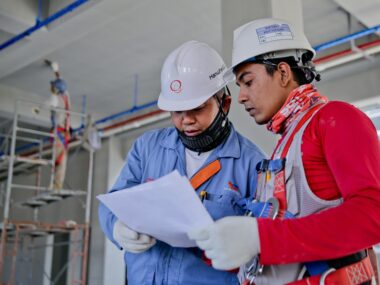Midwifery Jobs in New Zealand for International Applicants (2026 Guide)
Introduction
New Zealand’s healthcare system continues to rank among the world’s most equitable and patient-centred. Midwifery Jobs in New Zealand for International Applicants, Within that system, the profession of midwifery plays a pivotal role in supporting safe childbirth and maternal wellbeing. As the nation’s population grows and more families seek personalised maternity care, the need for qualified midwives—both local and international—has become more pressing. Caregiver Jobs in Ontario Canada with Visa Sponsorship
For international applicants, New Zealand offers an appealing blend of professional respect, supportive working conditions, and an inclusive immigration framework. The country’s workforce strategy for 2026 projects sustained demand for skilled midwives, particularly in regional and rural districts where healthcare shortages remain critical.
This article provides a detailed, professional overview of midwifery jobs in New Zealand for international applicants, covering visa sponsorship pathways, top employers, pay scales, and application procedures. It is structured to help internationally trained midwives understand eligibility, navigate licensing, and secure rewarding employment while ensuring full compliance with New Zealand’s immigration and healthcare regulations.
Why Work as a Midwife in New Zealand?
New Zealand’s healthcare sector is built around the principle of patient safety and partnership with families. Midwives enjoy autonomy within clearly defined professional standards set by the Midwifery Council of New Zealand. The work environment values evidence-based practice, continuing education, and culturally competent care—particularly for Māori and Pasifika families. Canada Nanny Visa Sponsorship Jobs for Foreigners
The country also provides an enviable work-life balance. Most full-time midwives work around 37.5 hours per week, with flexible schedules available through district health boards (DHBs) and community services. International midwives often note that the system’s respect for clinical independence and teamwork fosters a supportive workplace culture.
Financially, salaries remain competitive. By 2026, the median annual income for registered midwives is expected to rise in line with inflation adjustments and public-sector negotiations, ensuring continued parity with nursing and other allied health roles.
Entry-Level Midwifery Jobs in New Zealand with Visa Sponsorship
Internationally qualified midwives who meet registration and English-language requirements can begin with entry-level roles in both public and private facilities. These positions typically focus on supporting senior midwives in antenatal clinics, delivery suites, and postnatal wards. Midwife Visa Sponsorship Jobs in Queensland Regional Areas
Hospitals offering entry-level sponsorships include:
-
Te Whatu Ora – Health New Zealand: the unified public-health entity overseeing all DHBs.
-
Private maternity hospitals such as St George’s Hospital (Christchurch) and Birthcare Auckland.
-
Rural birthing centres in regions like Northland and Southland, where staffing shortages are most acute. Australia Jobs with Visa Sponsorship for Foreigners
Employers often sponsor the Accredited Employer Work Visa (AEWV), introduced under the updated immigration framework, which allows midwives to work in New Zealand for up to three years with potential for renewal or residency application.
International applicants are encouraged to gather a strong portfolio demonstrating recent clinical experience (minimum two years), professional references, and proof of midwifery registration in their home country before applying for sponsorship positions.
Types of Midwifery Roles and Healthcare Sectors Offering Visa Sponsorship in New Zealand
The midwifery profession spans multiple sectors, each providing opportunities for visa sponsorship:
-
Public Hospitals (Te Whatu Ora): Midwives here work in multidisciplinary teams handling antenatal, labour, and postnatal care. Sponsorship is common through national workforce programs. UK Healthcare Jobs with Visa Sponsorship
-
Private Maternity Facilities: Focus on patient-centred childbirth experiences. These facilities often recruit international midwives for their commitment to quality and continuity of care.
-
Community and Rural Midwifery: Practitioners provide outreach services in smaller towns and Māori communities. These roles are highly encouraged under immigration policies aimed at addressing rural shortages.
-
Educational and Research Institutions: Experienced international midwives can pursue teaching, clinical-education, or research posts at polytechnics and universities, contributing to the development of future midwives.
Top Hospitals and Healthcare Institutions Sponsoring Midwifery Jobs for Foreigners in New Zealand
Several organisations consistently provide sponsorship and relocation support:
-
Te Whatu Ora (Health New Zealand): Primary employer for midwives across all 20 regional divisions.
-
Auckland City Hospital – the largest tertiary hospital, known for its multicultural workforce. New Zealand Visa Sponsorship Jobs
-
Capital & Coast DHB (Wellington) – offers relocation allowances and mentorship for overseas recruits.
-
Canterbury District Health Service (Christchurch) – recognised for structured orientation programmes for international staff.
-
Private sector providers such as Birthcare and Southern Cross Healthcare also extend sponsorship for qualified applicants.
Benefits of Working as a Midwife in New Zealand with Visa Sponsorship
-
Competitive Remuneration: Annual salaries projected between NZD 65,000–115,000 by 2026 depending on seniority.
-
Professional Growth: Funded continuing professional development and postgraduate study options. Switzerland Jobs with Visa Sponsorship for Foreigners
-
Inclusive Work Culture: Culturally safe environments with strong support networks.
-
Family Visa Options: Dependents of sponsored midwives can apply for accompanying visas.
-
Pathway to Residency: After two years in accredited employment, midwives may be eligible under the Skilled Residence Pathway.
Challenges of Midwifery Jobs in New Zealand for Foreign Workers
Despite abundant opportunities, international applicants should anticipate certain challenges:
-
Registration Process: The Midwifery Council’s verification and competence assessment can take several months.
-
Cultural Adaptation: Understanding New Zealand’s partnership model with Māori and Pacific peoples is essential. Nursing Jobs in Netherlands with Visa Sponsorship
-
Rural Assignments: Many sponsorship roles are outside main cities; adaptability to smaller communities is valued.
-
Workload Variability: Shifts can be demanding, especially during seasonal birth surges.
Comprehensive preparation, orientation, and peer support can mitigate these challenges.
Regions in New Zealand with the Highest Salary Structures for Midwives (2026 Outlook)
-
Auckland: Highest cost of living offset by top pay scales; diverse patient demographics.
-
Wellington: Offers metropolitan practice combined with competitive allowances. Aged Care Jobs with Visa Sponsorship in Australia
-
Christchurch: Major tertiary centre with structured advancement programs.
-
Hamilton (Waikato): Rapid population growth driving sustained demand.
-
Dunedin (Otago): Smaller city offering attractive relocation packages for overseas staff.
Salary Scale for International Midwives in New Zealand (Projected 2026)
-
Entry-level midwives typically earn between NZD 60,000 and NZD 72,000 per year, depending on region and employer.
-
Mid-level midwives with several years of experience earn around NZD 73,000 to NZD 90,000 annually.
-
Senior midwives and those in leadership roles can expect salaries between NZD 91,000 and NZD 110,000 per year.
-
Specialized or clinical lead midwives may earn NZD 111,000 or more, especially in high-demand regions or public health facilities.
Figures reflect projected 2026 pay bands based on Te Whatu Ora and collective-agreement adjustments.
Application Requirements and Essential Documents for Midwifery Visa Sponsorship Jobs in New Zealand
International midwives must satisfy both registration and immigration criteria. Key requirements include:
-
Recognised Midwifery Qualification: Bachelor’s degree or equivalent accredited by the Midwifery Council.
-
English Proficiency: IELTS 7.0 overall (no band < 7) or OET Grade B. Doctors Jobs in the UK with Visa Sponsorship
-
Registration with the Midwifery Council of New Zealand.
-
Health and Police Clearance Certificates.
-
Evidence of Recent Practice: At least two years of professional experience within the last five.
-
Valid Job Offer from an Accredited Employer.
Step-by-Step Guide: How to Apply for Midwifery Jobs in New Zealand with Visa Sponsorship
-
Credential Verification:
Apply to the Midwifery Council for overseas qualification assessment. -
Competence Assessment Programme (CAP):
If required, complete an approved CAP course to meet local practice standards. Undergraduate Scholarships in Spain for International Students -
Secure a Job Offer:
Apply through accredited healthcare employers or official job portals. -
Visa Application:
Submit your Accredited Employer Work Visa application with sponsorship documents and proof of registration. -
Travel and Settlement:
On approval, coordinate relocation with your employer’s HR team and register with local health authorities upon arrival.
Top Websites and Job Portals to Find Midwifery Jobs in New Zealand for International Applicants
-
Careers.govt.nz – official career insights and listings.
-
Health New Zealand (Te Whatu Ora) – public sector vacancies and relocation information. Nurse Jobs in Australia with Visa Sponsorship
-
SEEK New Zealand – largest private-sector job board.
-
Indeed New Zealand – aggregated healthcare positions.
-
Immigration New Zealand (INZ) – verified visa-sponsoring employer lists.
FAQs about Midwifery Jobs in New Zealand for International Applicants
Q1. Can overseas-trained midwives work in New Zealand without registration?
No. All practising midwives must hold registration with the Midwifery Council of New Zealand and an Annual Practising Certificate.
Q2. Is visa sponsorship readily available?
Yes. Midwifery remains on the Green List of Long-Term Skill Shortages, making sponsorship easier for accredited employers. Chef Jobs in the USA with Visa Sponsorship
Q3. How long does the registration process take?
Typically 3–6 months, depending on documentation completeness and CAP scheduling.
Q4. Can family members accompany the applicant?
Yes, dependents may apply for accompanying or visitor visas under the principal applicant’s sponsorship.
Q5. Are midwives eligible for permanent residency?
After two years of continuous work under an accredited employer, midwives may apply through the Skilled Residence Category.
Conclusion: Building a Rewarding Midwifery Career in New Zealand as an International Applicant
Midwifery remains one of the most valued healthcare professions in New Zealand. For international applicants, 2026 offers unmatched opportunities for professional advancement, cultural engagement, and secure migration pathways. Visa Sponsorship Jobs in USA for Foreigners
By meeting registration requirements, aligning with reputable employers, and understanding the visa process, overseas-trained midwives can contribute meaningfully to the nation’s maternal-care goals while enjoying a high standard of living. New Zealand’s inclusive policies, structured training, and commitment to healthcare quality make it an ideal destination for building a long-term, fulfilling career in midwifery.






